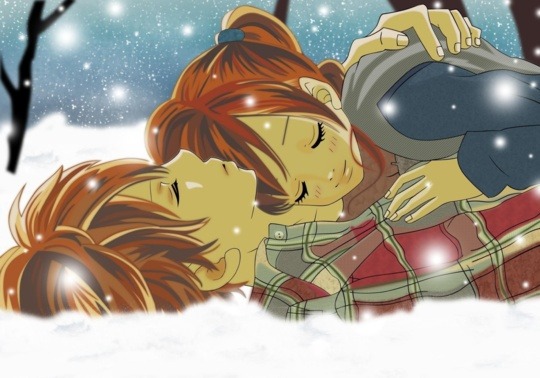
Japan and the United States have different views of dating and marriage. There are many similarities, as well. Marriage has a long history in Japan, a history that is based on gender roles influenced heavily by Confucian views. I won’t get into these views in this article. If you want to learn more about gender role expectations in Japan, gender roles of women, and how China’s Confucius has even influenced anime, follow these links. This article will focus on Japan’s dating culture and marriage attitudes. Keep in mind, I am an outsider looking in.
Japanese Dating Culture
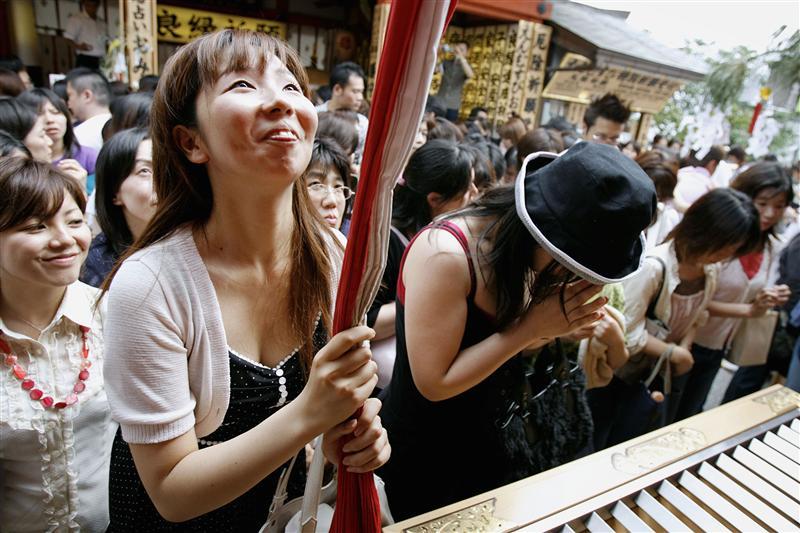
The point of dating is to get to know someone. The rules of dating, courtship, vary across cultures. However, the point remains the same. There are a few key ideas that are identical to dating in Japan and in the United States. These ideas are good advice for anyone seeking to develop friendships and romantic relationships:
- Express interest in the person: genuinely want to learn more about her.
- Listen to him. Don’t just hear.
- Don’t rush the physical. It only hurts relationships.
Physical Intimacy – Sex
 I will expand on the third point. It is one of the key differences between Japanese dating customs and American dating customs. Several studies have found correlations with the amount of time a couple waits to have sex and the quality of their relationship. Those couples that wait until marriage report the highest satisfaction and quality (Willoughby, Carroll, & Busby, 2014):
I will expand on the third point. It is one of the key differences between Japanese dating customs and American dating customs. Several studies have found correlations with the amount of time a couple waits to have sex and the quality of their relationship. Those couples that wait until marriage report the highest satisfaction and quality (Willoughby, Carroll, & Busby, 2014):
This study found that the longer a couple waited while dating to become sexually involved, the better their relationship was after marriage. In fact, couples who waited until marriage to have sex compared to those who started having sex early in their relationship reported higher marital satisfaction, better communication patterns, less consideration of divorce, and better sexual quality.
This brings me to the key difference between Japanese and American dating. Physical intimacy, even between professed couples, is a slow process. Kissing, hand holding, and sex do not come until after kokuhaku (more on this in a bit). Although there are always exceptions. With many couples, the physical intimacy part develops slowly (Back to Japan, 2011; Larkin, 2005).
Physical displays of intimacy in public are taboo. This lends to the slow (in American eyes) development of the physical aspects of dating. In the United States it is normal to express interest in a person through touch, kissing, hand holding, etc. This isn’t to say you won’t see this in Japan too. However, the idea of uchi-soto weighs heavily on people.
Uchi-soto

This is a concept that outlines Japanese behavior in public. Japanese society pressures people to be respectful and considerate of others, even at the expense of your own needs (Larkin, 2005). This is why PDA (public displays of affection) are taboo. The Western ideas of honesty and openness are seen as both attractive and problematic. Because of uchi-soto, many Japanese people are oblique about expressing their feelings. This is called amae. Amae is behavior that shows desire to be loved or take care of you ( Strowhorn; 2013; Kirai, 2007). This involves people trying to read each other’s feelings (Larkin, 2005).
Japanese men tend to be subtle and indirect when approaching women because of these societal norms. Men are encouraged by the corporate world to be subtle, tactful, and highly considerate of the well being of others. That is, when they approach women at all. This is one of the differences to consider with Japanese dating rituals. Dating follows a different course than Western standards. Again, there are exceptions.
First Comes Friends
Before dating there is gokon. These are group blind dates. A group of friends get together and mingle. This lets each group take stock of each other. The approval of friends when dating is often important (Back to Japan, 2011). After several gokon, often between 5 or 6, people pair off for coffee, movies, and other typical date activities. However, these are generally done in public. The couple is still not considered dating. They are only feeling each other out – rather than feeling each other up.
Next comes Love
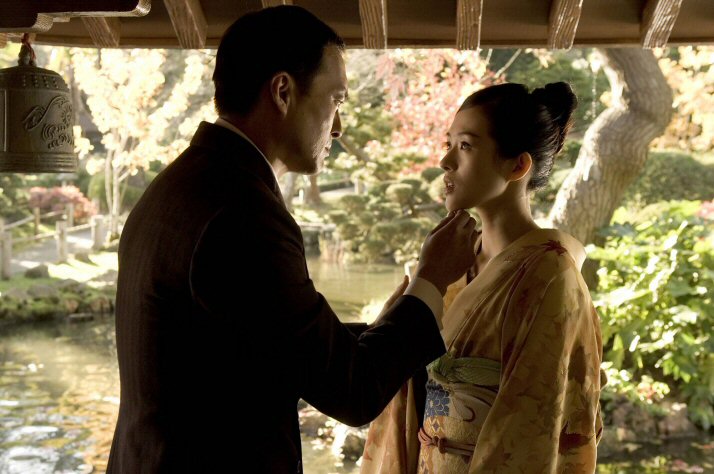
Kokuhaku is the next step for people who are into each other. This is the “dating” phase. However, it is a strange practice in Western eyes. One that is said to make many Westerners uncomfortable (Back to Japan, 2011; Larkin, 2005).
Kokuhaku is the confession of love often seen in anime. “I love you” is a strong concept in the West. It is not something we typically tell someone we are only starting to date. However, in Japan, this is the initiating confession for dating. The Western habit usually uses the phrase “I like you” to give wiggle room. However, in Japanese the three words for love all mean love ( 好き suki, 大好き daisuki, 愛知てる ai shitteru), only with increasing degrees (Back to Japan, 2011). There is no equivalent to “I like you.”
Men are expected to make the confession, but it isn’t unusual for women to do so.
After kokuhaku, dating follows a more recognizable route: meeting the parents and private dates. Physical intimacy starts to ramp up. The speed depend on the couple.
Then Comes Marriage
 Marriage rituals vary based upon family expectations. This really isn’t much different from the United States. I will instead focus on the reality of marriage in Japan: the trends and ideas behind it.
Marriage rituals vary based upon family expectations. This really isn’t much different from the United States. I will instead focus on the reality of marriage in Japan: the trends and ideas behind it.
Like many societies, marriage in Japan was arranged for much of its history. The purpose of marriage was the continuation the family line. Women were raised to be the “good wife, wise mother” and sacrifice herself for the good of family and country (Bardsley, 2004). This, as I mentioned in this article, has changed in many circles. The traditional gender roles still persist: married women in Japan feel the household tasks are unfair. Japanese men often do now share in housework. Because of this view, women who work are often not seen as contributing to the household. (Kaufman & Taniguchi, 2009).
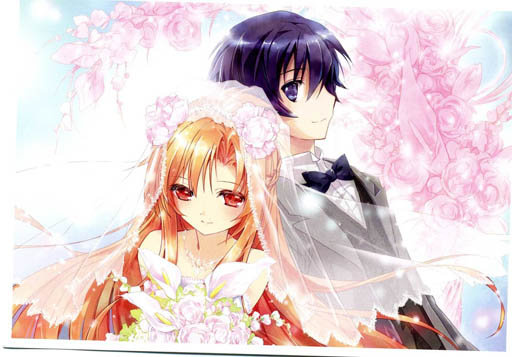
Unlike the West, Japan never associated virginity with chastity and purity. The closest idea to the Western virgin was the otome (maiden) who was thought to be lacking sexual desire in addition to experience. The Western ideas of virginity in relationship to marriage – that is, a woman should remain virgin for her husband – didn’t appear until the 19th century (McLelland, 2010). This isn’t to say it was okay for women to have sex. During the Tokugawa Period, both men and women could be considered adulterers. Married women, unlike men, were penalized. Women were property of husbands or fathers. Adultery was a property dispute that was left to the decision of those involved. Punishment could be everything from a fine to death (Stanely, A, 2007).
Marriage Trends in Modern Japan
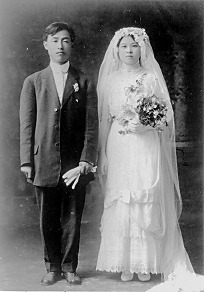
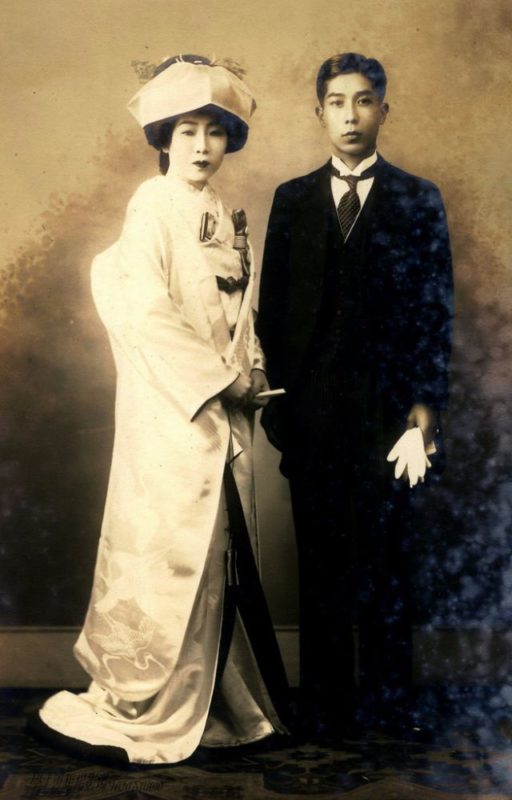
Children are exclusively associated with marriage in Japan. No marriage means no children, generally. As many know, Japan’s population is on the decline.
The decline in population is linked to a decline in marriage. Marriage on the the decline for several reasons.
- Educated men prefer to marry younger women and women who are less educated. Educated women do not want to marry less educated men. The number of educated women are also increasing (Yang & Yen, 2011;Raymo & Iwasawa, 2005).
- Women dislike the inequality in marriage (Yang & Yen, 2011).
- Japanese men do not want to marry a women who demands equal sharing of housework (Yang & Yen, 2011).
Because of these problems there are several trends that are on the rise:
- Women are marrying much later, when at all ( Hirakawa, 2004).
- There is an increased interest in international marriage, particularly of Japanese women marrying Western men (Bardsley, 2004; Hirakawa, 2004).
- Declining marriage rates equate the decline in population.
Women are experiencing problems with finding suitable Japanese men mostly because of increases in women’s education levels and a dislike of traditional female roles in marriage. Many Japanese men have yet to change their views.
Dating Doldrums

Okay, I am sure many of you are celebrating. Yes, Japanese women are interested in foreign boyfriends. Conversely, foreign women find it hard to snag a Japanese boyfriend because of the same problems Japanese women experience (Japan Times, 2005). There are problems with international dating. Language barriers and cultural differences are just a few.
Yes, guys do have a chance to find a “hot Japanese girlfriend.” There are differences in cultural and dating rituals to keep in mind as I have shown. Girls can find a cute Japanese boyfriend as well. These relationships may seem easier on the surface. However, language and culture are significant barriers that cannot be underestimated. It is important to understand why marriage is on the decline because it reflects on the difficulties people everywhere have. It is difficult to make a connection with another person. It takes patience, understanding, and openness. It is impossible to fully understand a person; she will always annoy and surprise you.
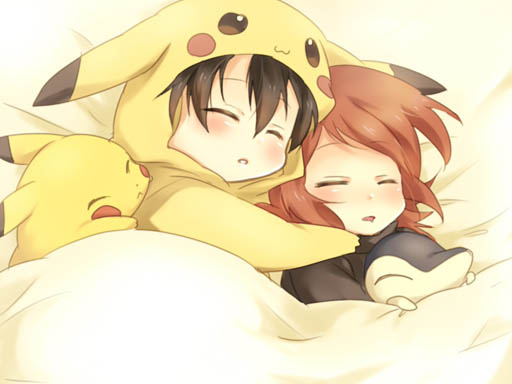 Despite the cultural differences in dating, people everywhere want to find someone to trust and share their lives with. Something about modern society has made it more difficult (or perhaps simply made that difficulty more visible) for two people to make that connection. The physical part of this connection is important, but it can be overemphasized. The emotional connection is what lasts throughout life. As I illustrated with research, it is often best to keep sex out of a blossoming relationship. Emotional context is important for the physical aspects of relating to another person. It is an outgrowth of loving that person for who they are rather than letting hormones rule decisions.
Despite the cultural differences in dating, people everywhere want to find someone to trust and share their lives with. Something about modern society has made it more difficult (or perhaps simply made that difficulty more visible) for two people to make that connection. The physical part of this connection is important, but it can be overemphasized. The emotional connection is what lasts throughout life. As I illustrated with research, it is often best to keep sex out of a blossoming relationship. Emotional context is important for the physical aspects of relating to another person. It is an outgrowth of loving that person for who they are rather than letting hormones rule decisions.
Dating and marriage faces similar problems in the United States. It is difficult to trust another and put her needs above your own.
This article touches on generalities based on culture and research. There are always exceptions. Dating and marriage is a personal, intimate activity. Everyone is different. It is best to not have preconceived ideas about a person. Language and culture are barriers for dating internationally; however, it is possible to move beyond them with openness, understanding, and shared mutual interest in the well being of each other. Dating is not about finding someone to complete you. Dating is about a complete person finding another complete person to share life.
References
Amy Stanley (2007) Adultery, Punishment, and Reconciliation in Tokugawa Japan Journal of Japanese Studies, Vol. 33, No. 2. pp. 309-335
Back to Japan (2011). Japanese Dating Culture. http://backtojapan.wordpress.com/2011/08/07/japanese-dating-culture/
Bardsley, J. (2004). Women, Marriage, and the State in Modern Japan: Introduction. Women’s Studies, 33(4), 353-359. doi:10.1080/00497870490453631
Christianity and Gender Relationships in Japan: Case Studies of Marriage and Divorce in Early Meiji Protestant Circles.
Kaufman, G. & Tanighuchi. (2009). Gender and Marital Happiness in Japan. International Journal of Sociology of the Family, Vol. 35, No. 1, pp. 69-87
Kaufman, G. & Tanighuchi. (2010). Marriage and Happiness in Japan and the United States. International Journal of Sociology of the Family, Vol. 36, No. 1 (Spring 2010), pp. 25-48
Helen Ballhatchet (2007). Christians in Japan. Japanese Journal of Religious Studies, Vol. 34, No. 1, pp. 177-201
Hirakawa, H. (2004). Give Me One Good Reason to Marry a Japanese Man: Japanese Women Debating Ideal Lifestyles. Women’s Studies, 33(4), 423-451. doi:10.1080/00497870490444947
Kirai: A Geek In Japan (2007). Amae. http://www.kirainet.com/english/amae-%E7%94%98%E3%81%88/
Kubota, Y. (2009). Matchmaking gets divine touch. http://blogs.reuters.com/japan/2009/07/10/matchmaking-gets-divine-touch/
Larkin, T. (2005) Dating Divide: Cross-cultural relationships can be a romantic minefield. The Japan Times. https://www.japantimes.co.jp/community/2005/11/15/issues/dating-divide/
McClelland, M. (2010) Kissing is a symbol of democracy!” Dating, Democracy, and Romance in Occupied Japan, 1945–1952″ Journal of the History of Sexuality, Vol. 19, No. 3 (SEPTEMBER 2010), pp. 508-535
Raymo, J. M. (2003). Educational Attainment and the Transition to First Marriage Among Japanese Women . Demography, 40(1), 83.
Strowhorn, Percy D. III, (2013) “The United States and Japan: A Cross Cultural Analysis of Gender Roles and Intimate Relationships”.
Global Honors Theses. Paper 9
Willoughby, B. J., Carroll, J. S., & Busby, D. M. (2014). Differing Relationship Outcomes When Sex Happens Before, On, or After First Dates. Journal Of Sex Research, 51(1), 52-61. doi:10.1080/00224499.2012.714012.
Yang, W., & Yen, P. (2011). A Comparative Study of Marital Dissolution in East Asian Societies: Gender Attitudes and Social Expectations towards Marriage in Taiwan, Korea and Japan. Asian Journal Of Social Science, 39(6), 751-775. doi:10.1163/156853111X619210
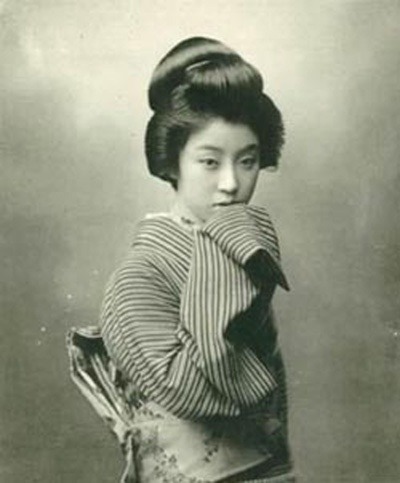

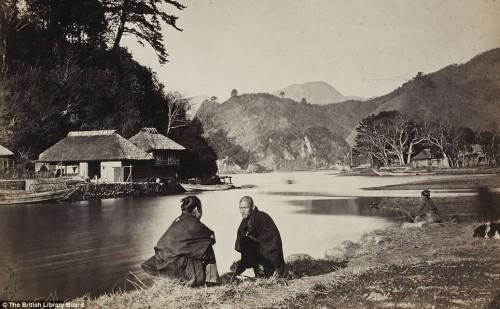
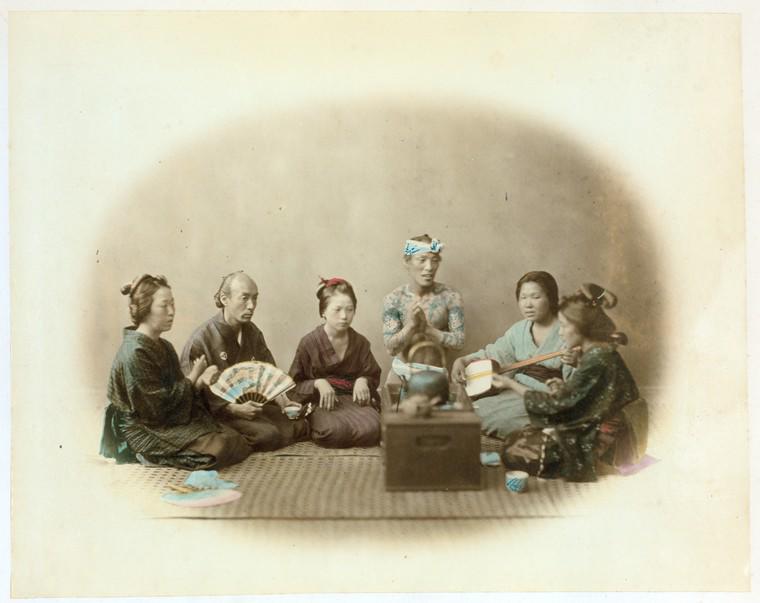
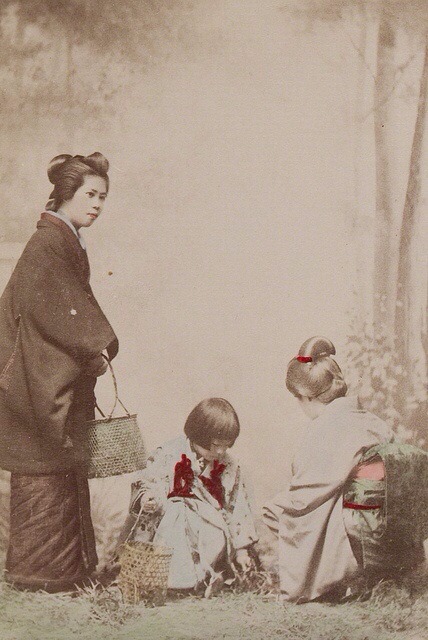

Japanese girls so cute 🥰 loyal my girlfriend my help please
That still didn’t work. If the language barrier is causing issues with this let me know and I’ll go make a picture and post a link to the picture. Ha. (I’m really suborn, so let me know if I’m overdoing it.)
Yes, italics are another way to denote sarcasm in addition to using quotation marks as I’ve done. But both methods still leave room for misunderstanding. Italics also denote emphasis.
The comments block filters html and other characters for security reasons. You can’t harden a website too much!
Best of luck with your book and thanks for the sarcasm formatting suggestion. Avoiding sarcasm is best practice, in speech and in writing. Sarcasm, after all, is easily misunderstood.
I’m very sorry this comment box thought my fake code was a real code and won’t show that part making my comment confusing! lets try again:
Put a fake and very sarcastic code on the end of a sarcastic sentence:
“Yes, guys do have a chance to find a *hot Japanese girlfriend* put a bracket here; also known as the Less than math symbol and inside the brackets a : / followed by the words sarcasm and end with a greater then symbol-bracket.
I’m going to try using spaces to get around this textbox limitations:
“Yes, guys do have a chance to find a *hot Japanese girlfriend*
If this is your dot com, please change the settings to allow simple code as that was tiring. ha, ha!
It’s pretty informative read. But as a Vietnamese woman, I felt discomforted with “Yes, guys do have a chance to find a “hot Japanese girlfriend” were written in a way to appeal to white/western fetishization of Asian women. It’s one thing to simply inform westerners, it’s another to play into yellow fever, especially because this article does attempt to tell you to be respectful of individual and cultural idiosyncrasies.
I meant that sentence to be a sarcastic statement, but I can see your stance. I had hoped the tone of the article would’ve made the statement clear. I suppose not!
Hi! To show sarcasm on the internet–with the lack of body language and tone– you need to put the sarcastic word in italics (I can’t show it here as this is just a basic comment box) and often end the sentence with:
“Yes, guys do have a chance to find a *hot Japanese girlfriend* <– italicized words
“Yes, guys do have a chance to find a *hot Japanese girlfriend*
Put them both together and nobody will misunderstand as it’s very clear. 🙂
Not my real email because of spam bots. My real email: vaporlight AT aol DOT com
Thank you for his information! It is one of the (many) articles that’s helping with my book as I’m trying to represent the Japanese culture with respect and not to get stuff wrong that can case problems. My book probably won’t become some big thing, but it’s import not to spread misinformation and stereotypes! Right? Right! <3
Good day, Mr. Kincaid, I sent you an email but it seems the email address is no longer working. I would like to seek permission to use excerpts of some of your articles for the first book Im writing. It’s about Asian Women, culture and divorce. My style is paraphrasing. The link is: https://japanpowered.com/japan-culture/a-look-at-gender-expectations-in-japanese-society
Hoping for a favorable response.
Thank you and best regards,
CML
Apologies for not getting back to you sooner. I’ve had computer problems all week.
As long as you properly attribute the articles in your bibliography, you can use them under the US Fair Use copyright clause.
Best of luck with your project!
Thank you for your reply, Mr. Kincaid. No worries, I always patiently wait. And of course, I understand how inconvenient having computer trouble is. hope everything is up and working now.
Yes, I will properly make citations in my bibliography for the corresponding articles should there be more than one. Thank you for the moral support. More power to you and,
Godspeed,
CML
Hi, Chris
This is an odd question, but …would you still have the source for the wedding photograph? I’m doing an all-but-dissertation on early 20th Century women’s fashions / social history, with as much of a global overview as possible. It would be wonderful to include the image in my research, particularly if there is contextual information to go with it.
Thank you in advance,
Becca
Hello Becca,
I made a mistake when I posted that image. That is a Korean American couple from around 1915. I forgot to caption it and compare it to a Japanese couple of the same period. I have corrected this. I hope the correction will prove more useful. The Japanese couple had been languishing in the media library for the last 4 years with one of my notes on it. Ooops! Thanks for bringing it to my attention.
Thank you; it’s all useful! I’ve had a difficult time finding material regarding women’s adoption of Western influences from the late Meiji and Taishō eras. (My research period is 1900-1920.) More accurately, I’ve had a difficult time finding trustworthy English-language primary source material covering those dates. (Once I get outside German, French, and Spanish, I start running into language barriers.)
Are the images from a particular archive? Is there an archive which you can recommend?
Thank you again, both for your assistance, and for the blog in general!
Becca
It is difficult to find good English-language sources. While he’s a bit too early, you might be able to mine Lafcadio Hearn for early Meiji inforamtion. Have you looked into the modern girl? I wrote a bit about them in regards to swimsuits. The bibliography may help you.
Lesley Downer touches a bit on how modernization affected geisha and women in Gion in her book Geisha.
The images were lifted from pinterest, and I did a little digging to get the information. Usually I turn to the New York Public Library’s Digital Collection for vintage photographs: https://digitalcollections.nypl.org/ They have a lot of images by Kusakabe Kimbei. Let me know if I can offer more help!
Hello Becca,
I have found your article very interesting and helpful. I am fully aware that you guys are not a dating site, but do you have any suggestions for good and proper dating sites for dating Japanese women? Most of the sites online are scam sites with fake profiles designed to take your money.
Thank you,
Del
I don’t know of any dating websites that work well for meeting Japanese women. I suppose Match.com and OKCupid may be resources. But online dating isn’t what it’s cracked up to be. According to Pew Research (2016), only 5% of Americans in a marriage or dedicated relationship met their partner online. Most meet the old fashioned way. So that might be the best route to take. According to eHarmony (which will skew their numbers) 20% of couples meet online and 7% of married partners meet online. I’m not trying to discourage you. However, the data is what the data is.
Meeting the old fashioned way might be the better option.
Hi Chris,
As a relatively inexperienced ALT in Japan I wanted to ask how the Japanese schools would view ALTs (ie non Japanese teachers) in a relationship sleeping over? Outside of marriage or engagement is this taboo? Could it be a risk to one’s job if the school found out?
Thanks for the article and hope to hear from you soon.
Hello Jimmy,
It may depend on the school’s policies. Relationships with co-workers is generally frowned upon (but pursued anyway). Some schools have conduct policies teachers may have to follow that prohibit any semblance of questionable behavior, even if it happens to be innocent. Review the policies. If you remain uncertain, it’s best to play it safe and avoid anything that could be seen as a black mark on you or your partner’s reputation.
As an ALT, you are an example for students and a cultural representative, which means you have the responsibility to behave “properly.” As a librarian, I share similar responsibilities in my community. I cannot go into a bar, for example (not that I really want to), because of how I’m seen as a role model.
Hi,
Your article is really interesting, and I like the fact that you use academic references. Talking about references, in the bibliography, I haven’t found the complete reference of “Larkin, 2005”. Can you give the title of the article/book of this author ?
Best regards,
Thanks for pointing that out! I’ve corrected the bibliography. Here’s the citation for you too:
Larkin, T. (2005) Dating Divide: Cross-cultural relationships can be a romantic minefield. The Japan Times. https://www.japantimes.co.jp/community/2005/11/15/issues/dating-divide/
Hello!
I have just come to Japan as an English teacher at Mainichieikaiwa (http://www.mainichieikaiwa.jp). Your pieces of advice are very practical. I hope they will help me make a Japanese girlfriend soon. Thanks indeed!
Best of luck with your teaching position and your dating!
Does a girl lose her virginity if She only gives a guy head ?
I just started talking to this girl as friends we laugh and joke around and text but I want to meet her but I d like to know when I can start getting serious I m not in any rush I m just curious can somebody help me out
It depends on how you define virginity. If you view virginity as first ever vaginal intercourse, no. If you view virginity as any sexual experience, yes.
Seriousness doesn’t mean sexual interaction. In many regards sex can get in the way of true spiritual and emotional intimacy. Seriousness deals more with commitment and putting your love’s interests ahead of your own.
Thanks for the article Chris. Was very insightful as I myself have just started a relationship with “a hot japanese girl”. Interestingly enough my feeling was what your described with a general uncertainty on the subject of love from my partner. We both said “it” but how do I know we’re of the same mind?
Hope you can do a followup article, “how to tell if a Japanese women is into you.” Definitely will read that one!
I am glad you enjoyed the article! Your question stumps both sexes. Cultural differences add an extra layer of complication, but don’t overemphasize those differences. At our cores, everyone wants the same things: to feel respected, loved, trusted, and protected.
How do you know you are of the same mind? Talk. Relationships require constant communication. We can never know what someone else is thinking. Most of the time I barely know what I am thinking for that matter! Regular heart-to-hearts, though sometimes painful and awkward, are necessary. Simply be open and ask questions. I believe all men need to spend more time listening and asking questions than talking about themselves. However, I will warn you from my own experiences: heart-to-hearts can lead to break-ups (both in romantic relationships and with friends). But it is better to break-up early than let a dying relationship linger.
Hmmm. I will have to think on that followup article. It is a good idea, but I will admit that my experience with Japanese women is limited to 3rd generation US-born Japanese-Americans.
I want yo marry jspners eomen
Hi..i hope i meet a man to be my husband someday is loyal;honest and willing to help my parents.
We are not a dating service, but I wish you the best of luck! Dating can be difficult.